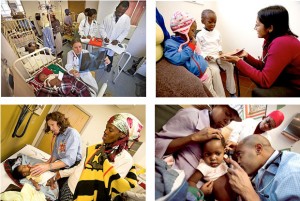 IPIBA promotes respect for human rights in all their forms.
IPIBA promotes respect for human rights in all their forms.
Intellectual property rights are limited by Human Rights, which have a higher nature. Human Rights are recognized as human rights in the Universal Declaration of Human Rights, 1948, the American Declaration of the Rights and Duties of Man, 1948, the American Convention on Human Rights of 1969 and other international and regional treaties. However, we consider that the relationship between intellectual property systems and Human Rights is complex and requires a thorough understanding of the nature and purpose of the intellectual property system. It is suggested by some that conflicts may exist between the respect for and implementation of current intellectual property systems and other human rights, such as the rights to adequate health care, to education, to share in the benefits of scientific progress, and to participation in cultural life.
Sometimes there may be ethical problems between IP and Human Rights, especially in developing countries and the least developed countries. For example, free access to medicines and medical technology is essential in countries and regions affected by malaria, HIV / AIDS, poverty, famine or civil wars. These are just some examples.
IPIBA has become an «observatory» for the protection of Human Rights in the IP field.